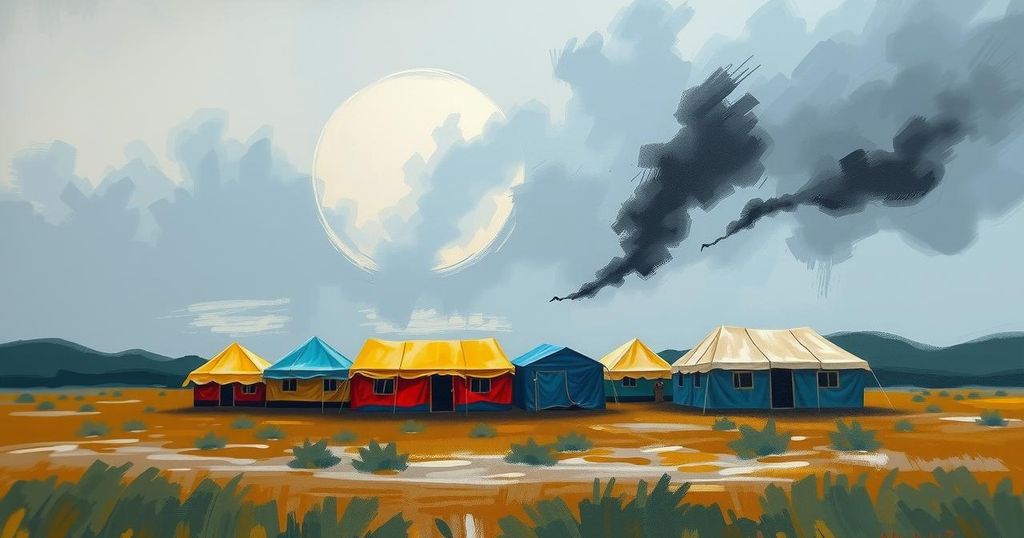Concerns Rise Over Treatment of Sudanese Refugees in Egypt

Refugees International has expressed grave concerns over the treatment of Sudanese refugees in Egypt, citing increased risks of deportation and access to essential services under the new asylum law. The law, passed without consultation with key agencies, threatens to revoke refugee status and limits vital protections. Meanwhile, reports from Amnesty International reinforce the issues of arbitrary detention and forced returns, exacerbated by the ongoing turmoil in Sudan.
Refugees International has raised alarms regarding the deteriorating conditions for Sudanese refugees in Egypt, advocating for immediate global intervention to protect their rights. Their report, “No Model of Refuge,” outlines critical issues such as potential deportations, limited access to essential services, and significant legal uncertainties threatening the safety of these individuals in Egypt amid changes in asylum laws.
The introduction of Egypt’s new asylum law in December 2024 has alarmed human rights groups. This legislation includes ambiguous national security clauses that empower authorities to revoke refugee status and categorize individuals who enter illegally as criminals. The law was enacted without engagement from the UN Refugee Agency (UNHCR) or civil society, further constraining the protections available to asylum seekers.
The report from Refugees International highlights troubling instances of Sudanese refugees facing denial of healthcare, education, and employment. Schools catering to Sudanese children have been closed, hospitals routinely deny treatment, and the requirements for work permits remain nearly insurmountable. Furthermore, organizations led by refugees that assist in providing vital support are encountering increased limitations due to the new legal framework.
Amnesty International corroborates these concerns with accounts of widespread arbitrary detention and the forced return of Sudanese refugees by Egyptian authorities. Their investigation documented multiple instances where Sudanese children, women, and men were held in overcrowded conditions and returned to Sudan without proper legal processes. In the first quarter of 2024 alone, over 800 Sudanese refugees were deported from Egypt without the opportunity to seek asylum, contravening the 1951 Refugee Convention’s principle of non-refoulement.
The ongoing geopolitical instability in Sudan has exacerbated the humanitarian crisis. Mediation efforts have consistently failed amid escalating violence between Sudanese Armed Forces (SAF) and Rapid Support Forces (RSF), leading to widespread atrocities, including targeted killings in West Darfur. Although the UN Security Council passed a resolution in March 2024 urging a halt to hostilities, negotiations between conflicting parties quickly deteriorated as neither faction exhibited willingness to compromise.
Urging immediate international action, Refugees International calls on donor nations to exert pressure on Egypt to reform its asylum policies. Their recommendations include an end to the deportation of Sudanese refugees, reopening of community schools, and providing work permits to refugees. Moreover, they advocate for a stronger UNHCR response to Egypt’s restrictive measures and greater access to detention conditions for monitoring purposes. Refugees International warns that Egypt’s current asylum framework risks undermining international refugee protection standards and worsening the humanitarian plight for those fleeing violence in Sudan.
In summary, the plight of Sudanese refugees in Egypt underscores the urgent need for reform in asylum policies. The newly enacted asylum law poses significant threats to their rights and well-being, while the ongoing conflict in Sudan exacerbates their vulnerabilities. Urgent international intervention is necessary to prevent further deterioration of conditions and to uphold refugee protection norms.
Original Source: www.jurist.org








